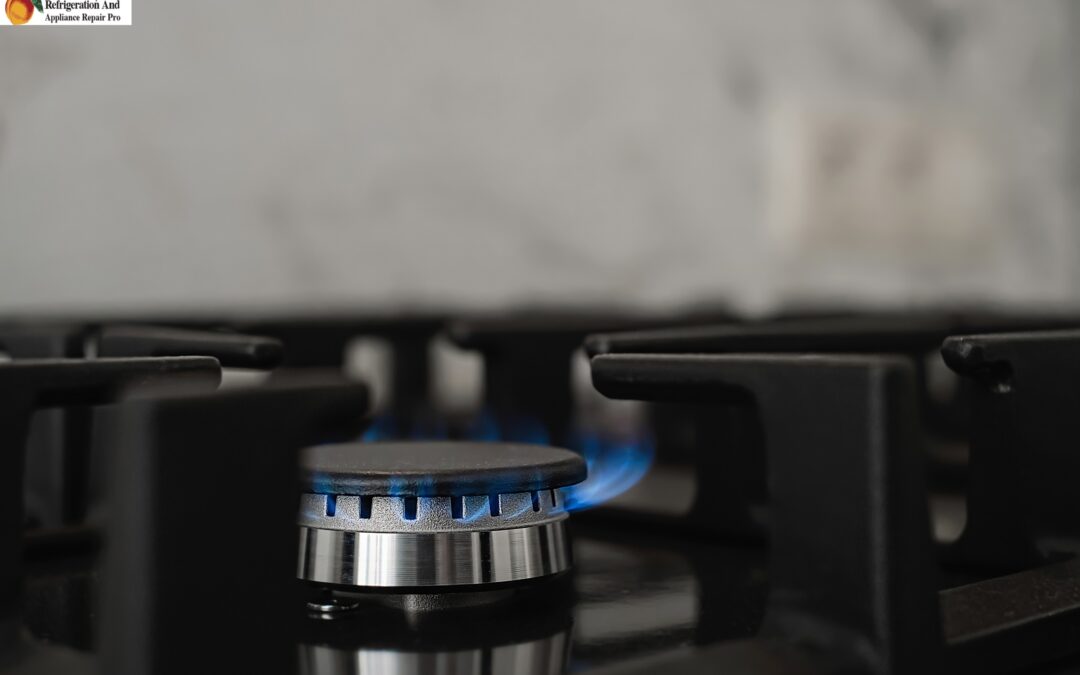Gas stoves are a favorite in many households thanks to their fast heating, precise control, and energy efficiency. But like any appliance, they’re not immune to problems. From weak flames to persistent clicking sounds, a malfunctioning stove can disrupt your routine and even pose a safety risk. That’s why gas stove troubleshooting is something every homeowner should understand. Catching and addressing issues early can save you time, money, and potential danger.
Ignoring even a seemingly minor issue can lead to greater damage or safety hazards. Gas leaks, fire risks, or performance failures often start with subtle signs—many of which are easy to miss. Whether you’re dealing with a burner that won’t light or a flame that’s suddenly turned yellow, recognizing the cause and knowing how to act can make all the difference.
Understanding Common Gas Stove Problems
One of the most common frustrations for homeowners is when a burner simply refuses to light. Often, the cause is as straightforward as food debris or grease clogging the igniter or burner holes. In this case, a careful cleaning after the stove cools down can solve the problem. But if you’ve cleaned the area and the burner still won’t spark, the issue may lie deeper—in a faulty ignition switch or worn-out spark module.
Another frequently encountered issue is a weak or uneven flame. When everything is working correctly, your gas stove should produce a strong, steady blue flame. If the flame is flickering or not consistent across all burners, this could point to blocked burner openings, misaligned burner caps, or even a problem with gas pressure. Ensuring the parts are properly seated and clean may fix the issue, but if that doesn’t help, it may be time to consider professional appliance repair in Atlanta to rule out internal gas flow problems.
A more concerning problem is a clicking sound that continues even after the stove is turned off. Most of the time, this is caused by moisture—perhaps from a pot boiling over or a cleaning spray seeping into the ignition system. Allowing the area to dry thoroughly often helps, but if the clicking persists, it could signal an electrical fault or failing igniter. Leaving this unresolved can result in sparks or prevent the stove from working altogether.
Perhaps the most alarming issue is the presence of a gas smell near the appliance. This should never be ignored. If you detect even a faint odor of gas, your first priority is safety—ventilate the area, avoid turning on any electrical switches, and leave the home if needed. After contacting your gas provider, you should immediately seek assistance from a local appliance repair service like Refrigeration and Appliance Repair, which has experience dealing with gas leak risks and restoring your stove’s safety.
An often-overlooked but equally important issue is when the burner flame turns yellow instead of blue. While it might seem like a minor color variation, it’s actually a warning sign. Yellow flames suggest incomplete combustion, which can produce carbon monoxide—a dangerous, odorless gas. This issue is usually caused by dirt buildup or an improper air-to-gas ratio. Cleaning the burner or adjusting the air shutter may help, but if the problem persists, it’s best to call stove repair experts who can calibrate the system safely.
Should You Fix It Yourself or Call a Technician?
Knowing when to handle an issue on your own—and when to call for help—is key to safe and effective gas stove troubleshooting.
You can often manage simple cleaning tasks yourself, such as removing grease from burner parts or realigning a mispositioned burner cap. If your stove got wet and won’t stop clicking, letting it air dry for several hours might be enough to solve the problem.
However, any issue involving gas leaks, flame discoloration, or repeated electrical faults is not something to take lightly. These situations require the skill and tools of trained professionals. Attempting to fix them yourself could not only make the problem worse but also put your home at serious risk.
For residents in the Atlanta area, Refrigeration and Appliance Repair offers timely, affordable help. Our experienced technicians are familiar with all major stove brands and have handled every type of repair—from minor part replacements to full system diagnostics. If you’re searching for gas stove repair near me, we’re your local, trusted solution.
How to Prevent Gas Stove Issues in the First Place
Preventative maintenance goes a long way. One of the best ways to keep your gas stove in good working order is by regularly cleaning the burners and ensuring no food or grease buildup remains. After every few uses, take time to check the burner caps for alignment and give the stove surface a wipe-down.
Additionally, inspect gas line connections occasionally to make sure everything is tight and secure. Scheduling professional maintenance once a year can also help detect hidden issues before they escalate, ensuring your appliance runs safely and efficiently year-round.
Conclusion
Your gas stove is one of the most important appliances in your kitchen—and when it stops working correctly, it can be both frustrating and dangerous. From clogged burners and persistent clicking to weak gas flame and yellow combustion, staying informed about the signs and solutions is essential.
By understanding common gas stove issues and knowing when to seek help, you protect your home and family while extending the life of your appliance. If you’re unsure what’s wrong or prefer to leave the diagnostics to a pro, contact us today for fast and professional gas stove repair in Atlanta. At Refrigeration and Appliance Repair, your safety and satisfaction come first.
